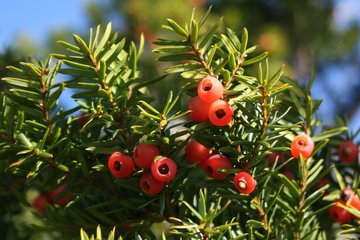Dancing tango in Down Under
Alban Mariette from the Max Planck Institute of Molecular Plant Physiology in Potsdam is researching how plants construct their cell walls. He went to Australia as part of the Melbourne-Potsdam PhD Program (MelPoPP). Here, he shares details of his experiences during the lockdown period and about his work-life balance as a PhD student.

Entirely lacking muscles and bones, plants nevertheless take on complex forms, producing their own stems, stalks, cones and trunks, as well as flowers and leaves. These tissues draw their strength and structure from the walls that surround each cell, which primarily consist of complex polysaccharides. For my doctoral thesis, I am researching the role played by certain proteins – the so-called nucleotide-sugar transporters – in cell wall synthesis. I use fluorescent biomarkers to make the proteins visible so that I can examine them under the microscope.
My studies are focused on thale cress (Arabidopsis thaliana), an unassuming little plant with tiny white flowers, which also happens to be one of the most popular model organisms in plant research. To discover the precise function of the transporter proteins, I am studying thale cress plants that have been genetically modified to make them incapable of producing the proteins in question.
I am conducting my PhD research at the Max Planck Institute of Molecular Plant Physiology in Potsdam, as well as at the University of Melbourne. In 2016, these two institutions and the University of Potsdam collaborated to establish the Melbourne-Potsdam PhD Program. This gave me the opportunity to do research on two continents. I originally planned to spend one year in Australia, but everything was delayed because of the COVID-19 pandemic and so one year morphed into two.
Melbourne is one of the few Australian cities that were subjected to a strict lockdown between March and June 2020. Residents were only allowed out of the house for one hour a day and had to stay within a five-kilometer radius. Both of my experiments and those of my colleagues were put completely on hold during this period. Just a handful of us were allowed into the Institute for two hours every three days to water the plants. The rules were gradually relaxed in June, when we PhD students were permitted to take turns working 20 hours a week in the lab. (I easily rack up 50 hours in a normal work week). Fortunately, I was able to extend my employment contract at the Max Planck Institute in Potsdam for another year and am now planning to complete my PhD there next summer.
Melbourne is an incredibly multicultural green city with a very European lifestyle, so I felt at home there. The university’s Parkville campus, where the School of Biosciences is situated, is really close to the city center, so I can get to know the Melbourne coffee scene on my daily walks. Much of my working day is spent in the lab, the hothouse or peering through a microscope. To strike a proper balance, I like to go to the gym and have joined an tango Argentino class. I particularly like the Australians’ laid-back attitude: one of the things you’ll hear most often around here is, “No worries, mate!”
The university’s Parkville campus, where the School of Biosciences is situated, is really close to the city center, so I can get to know the Melbourne coffee scene on my daily walks. Much of my working day is spent in the lab, the hothouse or peering through a microscope. To strike a proper balance, I like to go to the gym and have joined a tango Argentino class. I particularly like the Australians’ laid-back attitude: one of the things you’ll hear most often around here is, “No worries, mate!
My “Aussie” friends also love traveling, but despite the temptation to join them, my PhD workload makes it difficult to do so. But I did manage to make time for a trip along the famously scenic Great Ocean Road, which begins not far from Melbourne and snakes its way through some breathtaking scenery, past the Twelve Apostles – giant boulders that guard the mythical Southern Ocean.
Nor will I ever forget another great trip: I spent Christmas 2019 (during the Australian summer) with a group of doctoral researchers and postdocs in eastern Victoria. For some of us it was our first Christmas in southern climes, totally bereft of snow. Unfortunately, the region was ravaged by catastrophic bush fires while we were there and we had just enough time to get to know this charming coastal region before it was devastated by the flames. When we got back to Melbourne, some of us started wearing masks to protect ourselves from the disastrous air pollution caused by the fires. That was still a very unusual thing to do back then and we felt pretty strange. Who would have thought that just a short time later, masks would become part of everyday life all around the world!












